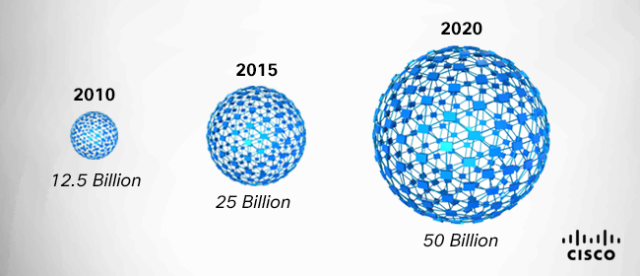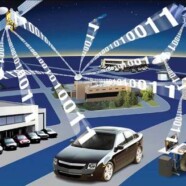Experts Share Visions for Future Web, Tech
As the Internet celebrates its 25th anniversary, a group of experts is trying to imagine how technology will influence our lives 10 years down the road.
The report, which was done by the Pew Research Center and Elon University’s Imagining the Internet Center, combines the “imaginings” of some 1,500 experts.
“It is striking how much consensus there is among these experts on what will change, and equally striking how varied their answers are when they are asked how those changes will impact and influence users in good and bad ways,” said Elon University Professor Janna Anderson, a primary author of the report.
One recurring theme among the experts was the notion that the Internet may become less visible in daily life, becoming, instead, “like electricity.”
This, the report said, could “produce vastly greater human and machine connectivity that will change everything from personal interactions to the decisions made by governments around the world.”
Many of the predictions foreshadow positive developments, but there are certainly some concerns, according to the experts.
Pew and Elon have been doing similar surveys since 2004, and Anderson said it was interesting to see how excitement over technology has become tempered over that time.
She said in 2004, most experts talked about how technological advancement was going to be great.
“We hear enthusiasm now, but also more about the negative, more so than ever before,” she said. “People are starting to realize that the power of communication can be used by anyone, good or bad.”
On the hopeful side, the increasing reach of the Internet will enhance global connectivity, which could foster “more positive relationships among societies,” according to the report.

In 2010 there were over 12.5 billion devices that connect to the Internet. Cisco’s Internet Business Solutions Group (IBSG) predicts some 25 billion devices will be connected by 2015, and 50 billion by 2020.
The report also said the so-called Internet of Things, when all kinds of devices from coffee makers to toothbrushes will be connected to the web, big data and artificial intelligence “will make people more aware of their world and their own behavior.”
“Devices will more and more have their own patterns of communication, their own ‘social networks,’ which they use to share and aggregate information, and undertake automatic control and activation,” said David Clark, a senior research scientist at MIT’s Computer Science and Artificial Intelligence Laboratory in a statement. “More and more, humans will be in a world in which decisions are being made by an active set of cooperating devices. The Internet (and computer-mediated communication in general) will become more pervasive but less explicit and visible. It will, to some extent, blend into the background of all we do.”
Experts also see increased use of augmented reality and wearable devices which can monitor aspects of your daily life, giving a user feedback to improve, for example, personal health.
Pew and Elon will soon be publishing another report on wearables.
Lastly, and more of a mixed bag, the experts also saw the potential for more “Arab Spring” type uprisings, some peaceful and some not.
On the negative side, the experts cautioned that the increasing divides between haves and have-nots that could result in violence.
In 10 years, experts said the net will continue to be plagued by “abuses and abusers” involved in pornography, crime and bullying, but that these people will “evolve to scale,” with “new capacity to make life miserable for others.”
The report also warned that Internet freedom could face threats from governments and corporations “as they invoke security and cultural norms.”
“I hope there will be greater openness, more democratic participation, less centralized control, and greater freedom,” said Marc Rotenberg, president of the Electronic Privacy Information Center. “But there is nothing predetermined about that outcome. Economic and political forces in the United States are pulling in the opposite direction. So, we are left with a central challenge: will the Internet of 2025 be—a network of freedom and opportunity or the infrastructure of social control?”
Finally, the report said privacy will continue to erode and that it “will be something only the upscale will enjoy.”
“Over the past decade, it’s the people who have power and control that can protect their privacy,” said Anderson. “The rich will be able to find ways to keep their data private.”
Of course, predictions are fraught with perils, but Anderson researched thousands of predictions made in the 1990s, saying many of them were “incredibly prescient” and “right on the mark.”

